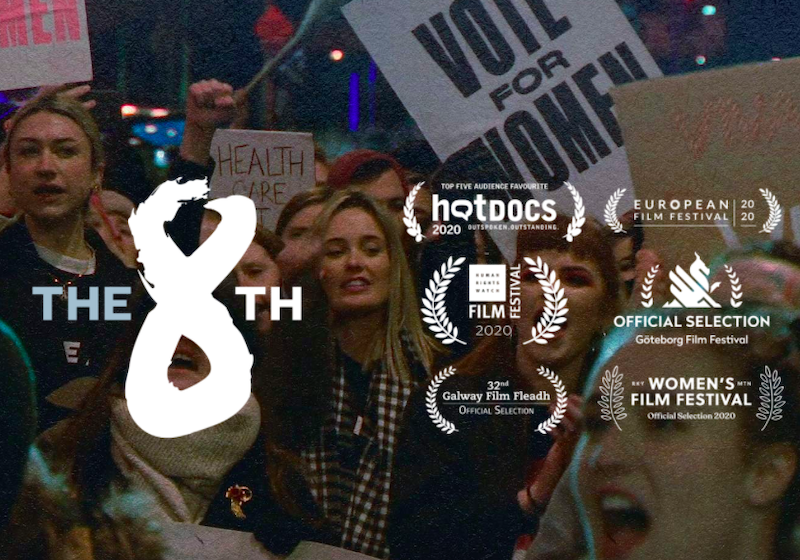Students will remember the 2018 Repeal referendum as a contentious time in Irish politics. While it has been a prevalent issue for many years, the repeal the eighth campaign gained momentum in 2012 when Savita Halappanavar tragically died after she was denied an abortion by Irish doctors.
In 2016, Aideen Kane, Lucy Kennedy and Maeve O’Boyle began working on a documentary to chart the campaign’s progress. Maeve O’Boyle sat down with The University Times, to discuss one of the most historically significant times in Irish politics.
O’Boyle, a Trinity graduate, studied English literature and drama in college, before going on to specialise in documentary filmmaking. “We knew that there would probably be a referendum so we decided that this might be something good that we could do”, O’Boyle tells me of The 8th. O’Boyle says that the team had all grown up “under the shadow of the 8th” in the 1980s and 1990s, and felt that this was the story for their generation to tell.
While they were “all definitively pro-choice”, O’Boyle says that they approached the campaign as documentary filmmakers, watching it from the outside in. The film has been praised for incorporating voices from both sides of the debate, although it features more activists from the Together For Yes campaign. O’Boyle explains that some people from the No side refused to participate when approached. The directors interwove these contrasting voices to establish a unique perspective and “create a continuity of both sides”.
The two main activists that O’Boyle and her co-directors worked with were Ailbhe Smyth and Andrea Horan. “Ailbhe was at the front and centre of this debate and had fought it for her entire life and career”, O’Boyle explains. “She was someone who was so articulate and so clear-minded on the issue, so we knew she would be a great guide for the film.”
Andrea Horan approached her activism in a more unconventional way, according to O’Boyle, by starting conversations on the issue with women in her nail bar, Tropical Popical. “She was mobilising this young grassroots movement in a more unorthodox way”, O’Boyle tells me. The directors worked very closely with both women to make the documentary: “You can’t make a film unless your main protagonist is on board with you and wants to tell the story with you.”
To make a film like this “you attach yourself to a protagonist that you think is going to be empathetic, driven and motivated to get something over the line”, O’Boyle tells me, explaining how her team found inspiration in Smyth and Horan’s activism. Although there was no guarantee of a referendum when they started researching the film, O’Boyle and her co-directors felt that the young activist movement was “gaining incredible momentum”, and that “it was just a question of when”.
The 8th’s general release has been delayed due to the pandemic. The film is set to be released in Irish and UK cinemas in early 2021. It made its premiere at Hot Docs in Toronto earlier this year, was shown at the Human Rights Watch Film Festival in June and opened the Galway Film Fleadh in July. Details about upcoming digital screenings are available on the film’s website. You can also find them on the film’s Instagram and Twitter pages.






